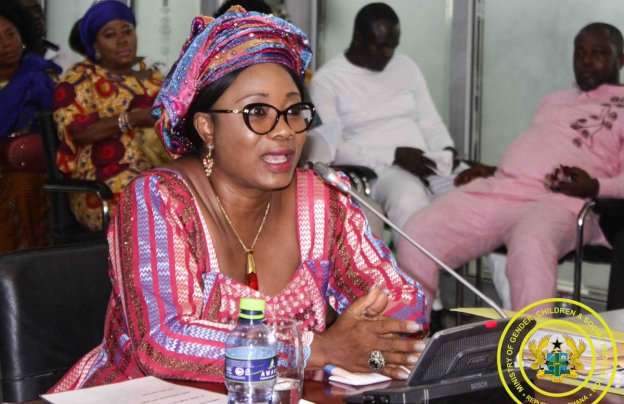 Dalex Finance’s CEO Ken Thompson has called on the government to increase taxes across board and cut its expenditure to help save the economy from crushing.
According to Mr. Thompson, the time has come for the Minister of Finance Ken Ofori-Atta, to take some tough measures for and on behalf of the government and face the reality or watch the economy to run down.
The Chief Executive Officer of Dalex Finance made these comments when he took his turn at the CIMG talk series which was themed a “Night with Ken Thompson” where he spoke on the topic “A Conversation with Ken”.
Mr. Thompson who said he was having a conversation with his name sake the Finance Minister had his presentation in four thematic areas.
He started off by showing that, the Cedi was overvalued using the Big Mac Index stating again that the Ghanaian currency was still overvalued, making Ghanaian exports expensive and uncompetitive, whiles, imports were relatively cheap.
This he argued had created the situation where imports had become cheaper compared to exports, creating a situation that may stifle government’s one district one factory programme due to cheap imports.
Dalex Finance’s CEO Ken Thompson has called on the government to increase taxes across board and cut its expenditure to help save the economy from crushing.
According to Mr. Thompson, the time has come for the Minister of Finance Ken Ofori-Atta, to take some tough measures for and on behalf of the government and face the reality or watch the economy to run down.
The Chief Executive Officer of Dalex Finance made these comments when he took his turn at the CIMG talk series which was themed a “Night with Ken Thompson” where he spoke on the topic “A Conversation with Ken”.
Mr. Thompson who said he was having a conversation with his name sake the Finance Minister had his presentation in four thematic areas.
He started off by showing that, the Cedi was overvalued using the Big Mac Index stating again that the Ghanaian currency was still overvalued, making Ghanaian exports expensive and uncompetitive, whiles, imports were relatively cheap.
This he argued had created the situation where imports had become cheaper compared to exports, creating a situation that may stifle government’s one district one factory programme due to cheap imports.
 The plain-speaking Dalex Finance CEO said Ghana is broke and heading for disaster because in 2017, we spent almost 100% of all our ‘Revenue including Grants’ on three-line items as which were Compensation to employees, Interest Payments, and, Statutory Payments e.g. GETFund, District Assemblies Common Fund, and NHIS.
Per his presentation then asked the Finance Minister to stop borrowing to fund recurrent expenditure and only borrow to fund development expenditure
The plain-speaking Dalex Finance CEO said Ghana is broke and heading for disaster because in 2017, we spent almost 100% of all our ‘Revenue including Grants’ on three-line items as which were Compensation to employees, Interest Payments, and, Statutory Payments e.g. GETFund, District Assemblies Common Fund, and NHIS.
Per his presentation then asked the Finance Minister to stop borrowing to fund recurrent expenditure and only borrow to fund development expenditure
 “Since we spend over 100% of our revenue on these 3 items, all our other expenditure is done from monies borrowed. We are borrowing to fund consumption and not to fund investment. Our debt is piling up (70% of GDP), and, we may not be in a position to repay in future. Even before then, any natural or man-made disaster could send us into a default tailspin of Government obligations causing intolerable hardship, widespread business failures, and mass unemployment..
According to him, Ghana’s growing debt is one of the biggest risks that could cripple the economy, hence there must be a national agenda on drastically reducing it as that can throw the government’s One District One factory programme out of alignment with planned spending.
Ghana’ public debt stock currently stands at 138.8 billion cedis.
On increasing taxes, Mr. Thompson urged Citizens to allow the government to increase all taxes but for an agreed number of years which should not exceed three years to help raise enough funds to support the economy.
“We are not likely to reduce our expenditure on salaries in the short term, and even though there has been some capping of statutory obligations the net effect is negligible. Our only hope is to increase revenue in the short to medium term in order to fund consumption expenditure. We must increase revenue as follows: Get the informal sector to start paying individual taxes, enforce evidence of tax payment on property registration e.g. vehicle registration, company registration, land title registration, etc and increase taxes across board especially property taxes. That is our hope in the short term.”
“Since we spend over 100% of our revenue on these 3 items, all our other expenditure is done from monies borrowed. We are borrowing to fund consumption and not to fund investment. Our debt is piling up (70% of GDP), and, we may not be in a position to repay in future. Even before then, any natural or man-made disaster could send us into a default tailspin of Government obligations causing intolerable hardship, widespread business failures, and mass unemployment..
According to him, Ghana’s growing debt is one of the biggest risks that could cripple the economy, hence there must be a national agenda on drastically reducing it as that can throw the government’s One District One factory programme out of alignment with planned spending.
Ghana’ public debt stock currently stands at 138.8 billion cedis.
On increasing taxes, Mr. Thompson urged Citizens to allow the government to increase all taxes but for an agreed number of years which should not exceed three years to help raise enough funds to support the economy.
“We are not likely to reduce our expenditure on salaries in the short term, and even though there has been some capping of statutory obligations the net effect is negligible. Our only hope is to increase revenue in the short to medium term in order to fund consumption expenditure. We must increase revenue as follows: Get the informal sector to start paying individual taxes, enforce evidence of tax payment on property registration e.g. vehicle registration, company registration, land title registration, etc and increase taxes across board especially property taxes. That is our hope in the short term.”
 Mr. Thompson further stated that, “the only way we can sell this to the public is for the politicians to share in the pain e.g. stop the purchase of numerous Toyota Land Cruisers that cost over GHC 600,000 each.”
He however cautioned that, this should be done if only the government will be prudent with its spending.
Meanwhile, he appealed to the Nana Akuf-Addo’s government to focus on boosting the agricultural sector in other to expand the stagnant economy.
Mr. Thompson further stated that, “the only way we can sell this to the public is for the politicians to share in the pain e.g. stop the purchase of numerous Toyota Land Cruisers that cost over GHC 600,000 each.”
He however cautioned that, this should be done if only the government will be prudent with its spending.
Meanwhile, he appealed to the Nana Akuf-Addo’s government to focus on boosting the agricultural sector in other to expand the stagnant economy.
 He pointed out that, the provision of loans to farmers at lower interest rates will go a long way to motivate them in doing more and also grant them the solution to their monetary problems but the simple farm tools like that cutlass should not be used to farm again.
Mr. Thompson believed it was time for agricultural to be made sexy which will attract the youth as long as we consider to have mechanizing farming.
He pointed out that, the provision of loans to farmers at lower interest rates will go a long way to motivate them in doing more and also grant them the solution to their monetary problems but the simple farm tools like that cutlass should not be used to farm again.
Mr. Thompson believed it was time for agricultural to be made sexy which will attract the youth as long as we consider to have mechanizing farming.
 Source: B&FT]]>
Source: B&FT]]>
Stop borrowing, increase tax and focus on agric – Ken Thompson
Reading Time: 6 mins read
Recent Posts
- NPP sacks MP for Agona West Cynthia Morrison, 279 others from party
- The ECOWAS Bank for Investment and Development wins the Africa Sustainability Award
- Ghanaian sports journalist Naa Shika Stargurl shines on global stage
- Central Regional Minister to go to Court over her dismissal from NPP?
- NPP accuses NDC of lawlessness, demands urgent re-collation by EC in disputed constituencies
- Anytime there’s vigilance, NDC wins – Malik Basintale
- Akufo-Addo statue in Takoradi suffers partial damage amid controversy
- Current financial year proving challenging for COCOBOD – IMF
Popular Stories
-
NPP sacks MP for Agona West Cynthia Morrison, 279 others from party
-
Central Regional Minister to go to Court over her dismissal from NPP?
-
Agona West NPP expels Regional Minister, 282 others for anti-party activities
-
Ghanaian sports journalist Naa Shika Stargurl shines on global stage
-
Blue Gold to drag Ghana to World Bank as Jinapor approves sale of Bogoso Prestea Mine

ABOUT US
Newstitbits.com is a 21st Century journalism providing the needed independent, credible, fair and reliable alternative in comprehensive news delivering that promotes knowledge, political stability and economic prosperity.
Contact us: [email protected]
@2023 – Newstitbits.com. All Rights Reserved.















